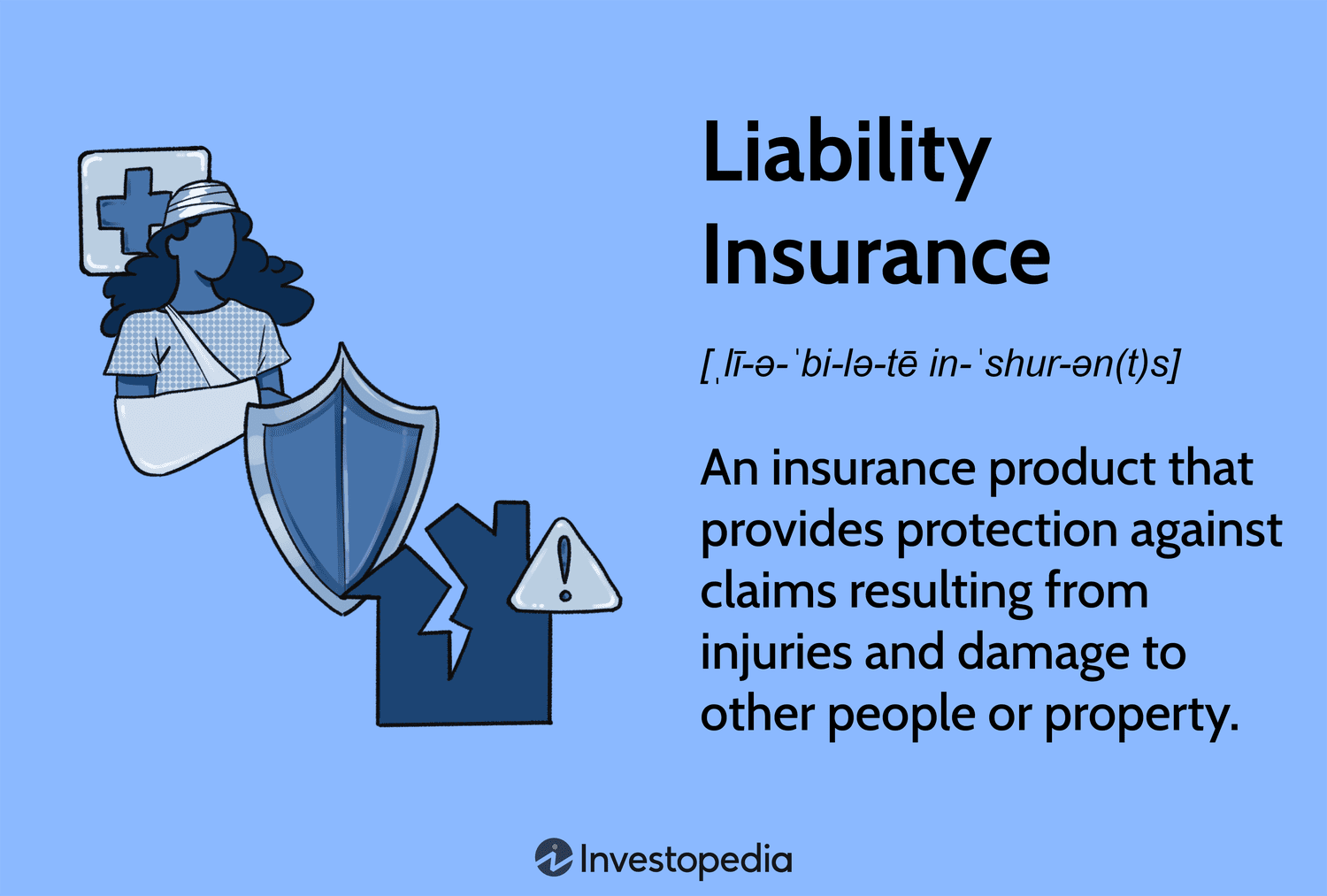Understanding Liability Insurance
Liability insurance is a crucial type of coverage that protects individuals and businesses from legal claims and financial losses resulting from accidents, injuries, or damages caused by their actions or products. It provides financial protection by covering the costs of legal defense and any settlements or judgments that may arise from a covered claim.
Types of Liability Insurance
There are several types of liability insurance, each designed to cover specific risks and circumstances. Here are some common types:
1. General Liability Insurance
General Liability insurance is the most basic form of liability coverage that most businesses should have. It protects against claims of bodily injury, property damage, and personal injury to third parties arising from the business operations, products, or services.
This type of insurance covers a wide range of potential risks, including slip and fall accidents, property damage caused by your employees, and defamation claims. It also includes coverage for legal defense costs, even if the claim is groundless or fraudulent.
2. Professional Liability Insurance
Professional liability insurance, also known as errors and omissions (E&O) insurance, is designed for professionals who provide services or advice to clients. It protects against claims of negligence, errors, or omissions that result in financial losses for the client.
Professionals such as doctors, lawyers, architects, and consultants often carry this type of insurance to protect themselves from lawsuits related to their professional activities. It covers legal defense costs, settlements, and judgments that may arise from a covered claim.
3. Product Liability Insurance
Product liability insurance is essential for businesses that manufacture or sell products. It provides coverage for claims arising from injuries or damages caused by a defective product.
If a product you manufacture or sell causes harm to a consumer, you could be held liable for the damages. Product liability insurance helps cover the costs of legal defense, settlements, and judgments related to these claims.
4. Directors and Officers Liability Insurance
Directors and officers liability insurance (D&O) protects the personal assets of directors and officers of a company in the event they are sued for alleged wrongful acts in their managerial roles.
This type of insurance covers legal defense costs, settlements, and judgments resulting from claims of mismanagement, breach of fiduciary duty, or other wrongful acts. It is particularly important for companies with a board of directors or executive team.
Why is Liability Insurance Important?
Liability insurance is important for several reasons:
1. Financial Protection
Liability claims can be financially devastating. Without insurance, you would be responsible for paying for legal defense costs, settlements, or judgments out of pocket. Liability insurance provides the financial protection you need to handle these expenses and protect your assets.
2. Legal Compliance
In many cases, liability insuranc is required by law or contract. For example, businesses often need to carry general liability insuranc to lease commercial space or obtain certain licenses. Professionals may be required to carry professional liability insuranc to maintain their licenses or certifications.
By having the appropriate liability insuranc coverage, you ensure compliance with legal and contractual obligations.
3. Peace of Mind
Knowing that you have liability insuranc coverage can provide peace of mind. It allows you to focus on your business or profession without constantly worrying about the potential financial impact of a lawsuit or claim.
With liability insurane in place, you can confidently handle day-to-day operations, knowing that you have a safety net to protect you from unexpected events.
How to Choose the Right Liability Insuranc
Choosing the right liability insuranc for your needs can be overwhelming. Here are some factors to consider when selecting a policy:
1. Assess Your Risks
Start by assessing the specific risks associated with your business or profession. Consider the types of claims that are most likely to arise and the potential financial impact of those claims. This will help you determine the types and amounts of coverage you need.
2. Research Insurance Providers
Research different insurance providers to find reputable companies that specialize in liability insuranc. Look for providers with a strong financial rating and positive customer reviews. It’s also important to consider their claims handling process and customer service.
3. Compare Coverage Options
Compare the coverage options offered by different insurance providers. Look for policies that provide the specific types of liability coverage you need. Consider the policy limits, deductibles, and any exclusions or limitations that may apply.
4. Consider the Cost
While cost shouldn’t be the sole determining factor, it’s important to consider the affordability of the insurance coverage. Compare premiums and consider the value provided by each policy. Remember, the cheapest option may not always offer the best coverage.
5. Seek Professional Advice
If you’re unsure about the type or amount of liability insuranc you need, consider seeking advice from an insurance professional or broker. They can help assess your risks and recommend the most appropriate coverage for your specific situation.
Conclusion
Liability insuranc is a critical component of a comprehensive risk management strategy for individuals and businesses. It provides financial protection and peace of mind, allowing you to focus on your work without the constant worry of potential legal claims. By understanding the different types of liability insuranc and selecting the right coverage for your needs, you can mitigate the financial risks associated with accidents, injuries, or damages caused by your actions or products.
